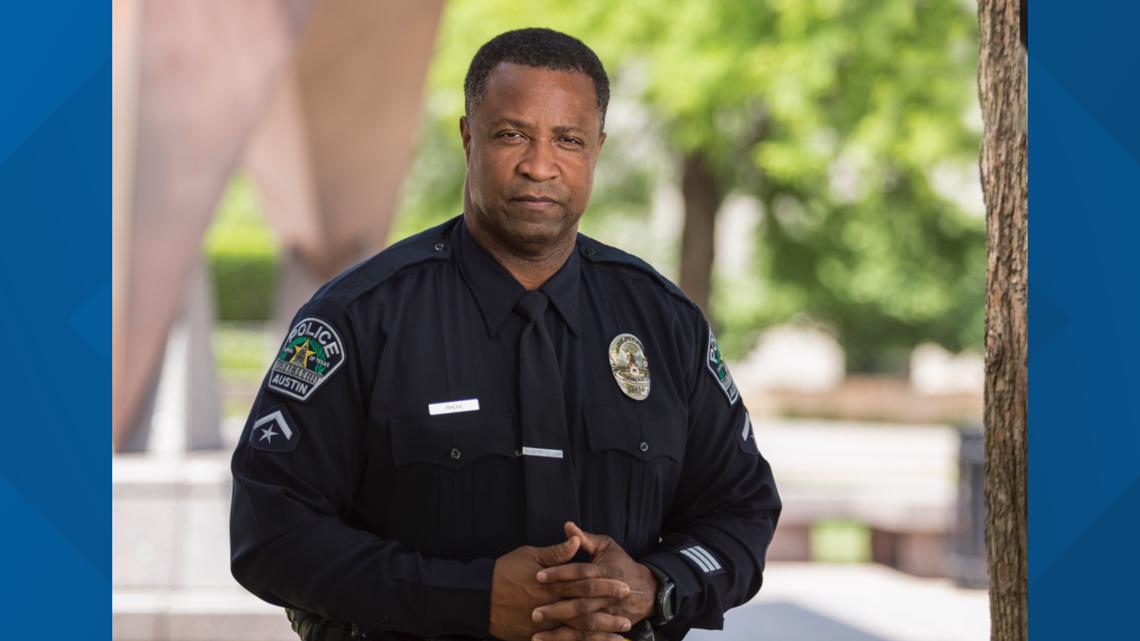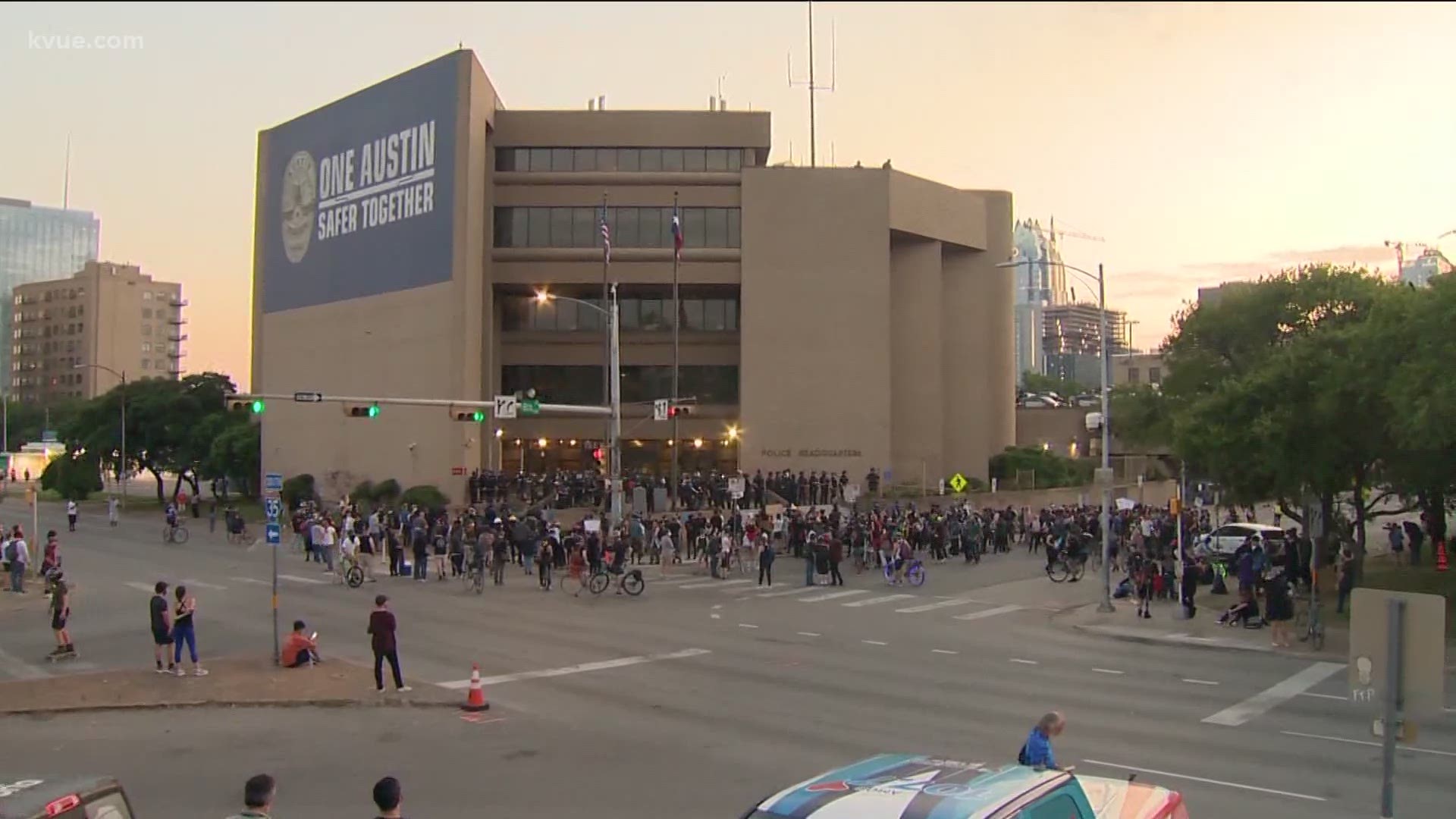AUSTIN, Texas — As he prepares for another day on the job, Michael Rhone suits up and straps his gun into its holster. The weight of the responsibility he carries as an officer has remained tucked in his mind for the last 17 years.
But when he is not wearing blue for the Austin Police Department, Rhone's shield is gone and he feels exposed to the same hardships as the rest of the black community in America.
“I can take off the uniform, but I'm going to be black 24/7," he said. "Talking to my kids to let them know that racism exists and how do we deal with it and how do we go about living our daily lives?”


Rhone is a father of four: two boys and two girls. Like the rest of the nation, he said watching George Floyd die under the knee of a police officer was a gut-wrenching experience.
"First thing that comes to mind is, I couldn't believe it and it crushed me just to see what the officer was doing to a black male," he said.
Rhone has watched racism play out across the country too much recently – in a New York park (Christian Cooper), on a Georgia neighborhood street (Ahmaud Arbery), and in an apartment in Louisville (Breonna Taylor). He has even experienced it himself.
The reality is that racism still plagues America.
Rhone wanted to make a difference in policing and serves as the president of the Texas Peace Officers Association (TPOA), the first black organization formed in the U.S. in 1935. Austin started its chapter in 1978.
He feels many of the officers in Austin police act and respond to deescalate situations, but they are being misrepresented more than ever due to the exposure and actions of "a few bad apples."
RELATED:
"Being a police officer, it's even tougher because we swore to protect and serve, and then we see what happened in Minneapolis, that wasn’t protect and serve," he said. "You look at that and now people think every officer has done that, which is not the case."
While George Floyd is just one of many black individuals to die in police custody historically, his case served as a tipping point for modern-day oppression.
Now, Rhone faces tough questions and scrutiny from his own family and friends. So, why does he still want to be a police officer?
"I say to be a part of the solution. The only way you can do that is become an officer and have those conversations with the community, with community leaders," he said.
Rhone said watching Floyd's video and other cases of police brutality cuts even deeper because he knows the pain, but also said that is not what the majority of cops stand for.
Yet, he knows this story is rooted much deeper than that and acknowledged a systemic issue that severely needs to be addressed.
Where does he stand with the protests?
Rhone believed the protests filling Austin streets in unprecedented numbers is productive for society, so long as they stay peaceful.
However, he disagrees with the looting, rioting and assault on officers that he said puts departments in a tough position to utilize force in order to protect both themselves and the community.
"The front line is the front line, and it's tough, but we are there to serve a purpose. And I think, for the most part, we do a good job," he said.
Instilling change and rebuilding trust
So where does he believe protests will lead Austin?
As someone who has worked under APD's changing protocols for many years, he said there is a systemic issue city leaders have barely started to address until now.
"Particularly in our department, there have been reports out that we have racial issues and retaliation, so if we can't get past that then we are going to continue to have what we have been seeing across the country," he said.
RELATED: Independent investigation into APD racism, homophobic allegations finds no policy violations
Despite Austin City Council's unanimous support to reform APD, Rhone believes the answer is not defunding the department.
"If we defund and don’t have a recruiting class, it doesn’t help the citizens of Austin," he said.
He said changing protocol and policy to better address the needs of the community is important, but as officers continue to retire, finding different means to do that is important.
"What I would like to see in the future, and I have been pushing this since it is one of our bullet points for TPOA, in my view is increase the number of black officers in the department. Male and female,” he said.
According to APD, the department has 134 sworn African American officers and 1932 sworn employees. That is less than 7%.
He also believes police leadership needs to have some honest and difficult conversations to not only acknowledge their shortfalls but also take action to address them.
RELATED:
“I do think we are in a time where hopefully things change nationally and also internally with APD," he said.
While no easy solution exists in this current climate, Rhone believes the police are still as important as ever.
He knows change is the only way officers can earn back the community's trust. He hears the cries for equality from his black community, he echos those same frustrations.
As policies change and significant decisions are considered, he hopes people keep their faith in a group who dedicated their lives to protect and serve.
"To be a part of the solution, you have to be at the table," he said. "I would tell people, 'Come ride out, see what we deal with on a daily basis and see how we handle situations,' and I think the citizens will get a better understanding of what we do and don’t do."
PEOPLE ARE ALSO READING:

